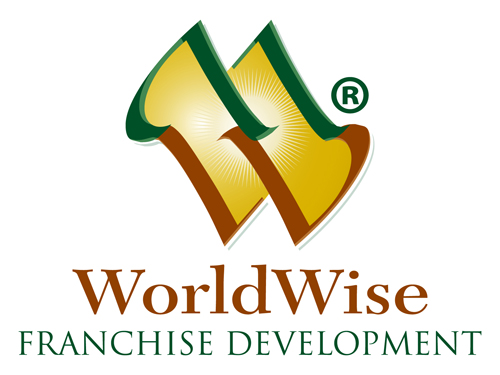HIRING AN EXPERIENCED FRANCHISE LAWYER IS IMPORTANT!
1. Buying a Franchise? Don’t be Penny-Wise, Pound Foolish
You are about to make a huge investment buying a franchise. Many prospective franchisees before you have jumped in feet first without testing it and have been burned. The majority of franchise opportunities require an investment of hundreds of thousands of dollars, and a good franchise lawyer will help you understand what you are getting yourself into. Your franchise lawyer should be well-versed in reviewing the Franchise Disclosure Document (FDD) and franchise agreement to pinpoint future legal issues and provide areas where you may be able to negotiate a better deal. This should not take more than five hours of billable time for a franchise lawyer experienced in reviewing these documents. An experienced franchise lawyer should also be able to assist you with reviewing the commercial lease agreement for your franchise location to ensure that you understand the terms of the lease and to negotiate objectionable provisions in the lease with the landlord. Other benefits of hiring an experienced franchise lawyer might be that he or she could provide you with tips on what type of locations should be targeted based on experience with past clients in that particular franchise industry or a similar one. Spending a few thousand dollars or less on an experienced franchise lawyer could protect you from many more thousands of dollars in future liability, could get you a better deal overall in the long run, will give you peace of mind, and also could save you from a bad legal and financial situation with a franchisor that is less than reputable.
2. Starting a Franchise? Franchise Lawyers with Experience can Guide You Through the Process
If you are starting a franchise from your profitable business, you should first seek out an experienced but cost-effective franchise lawyer to prepare your franchise documents, including the FDD and the franchise agreement. Shop around because legal fees for this process can be all over the map ranging from around $15K to upwards of $35 to $50K. More money doesn’t necessarily mean better lawyers; paying more might simply mean the law firm has more overhead. In addition to preparing a customized and legally-binding FDD and franchise agreements, your franchise lawyer hopefully have the experience to provide input on related franchise documentation, such as the operations manual, training manual and a franchise sales brochure. Employment and labor law issues – and possibly immigration law issues – may also arise in setting up a franchise company from an existing business. There are many non-lawyers out there offering prospective or “startup” franchisors cookie-cutter legal documents for a price that usually exceeds the legal fees for a custom document prepared by an experienced franchise lawyer. Buyer beware on these “franchisor factories” that often provide samples of FDDs or franchise agreements. Oftentimes, prospective franchisors will need to seek out the counsel of – and pay – a franchise attorney to clean up the off-the-shelf FDD and franchise agreements prepared by inexperienced vendors. Paying double is not necessary. Right from the start, prospective franchisors should seek out the best, most experienced, franchise lawyers in their area. There are a few good small firms with low overhead that have the skill to prepare your franchise documents but charge half the amount in legal fees as a big firm.
3. Beware of Lawyers Moonlighting as Franchise Lawyers
Many commercial lawyers or general counsel will advertise “franchising” as one of their practice areas. There are many different areas of franchising, and some lawyers who advertise as “franchise lawyers” simply represent franchisees in the sale of their business, just as the sale of any other business might require the assistance of counsel. When approaching a lawyer, make sure to ask targeted questions about their franchising experience. If you are a prospective franchisor, you might ask: Have you represented franchisors? Have you represented other franchisors in my industry? How many FDD’s and franchise agreements have you prepared? Have your agreements held up under scrutiny by the regulators in the various franchise registration states? It is essential that the franchise lawyer you hire have experience representing franchisors and not just clients who license their products or trademarks. Franchise laws are very specific on the federal and state level, and compliance with these laws is essential to the growth and profitability of your franchise system. If you are a prospective franchisee, you might ask the lawyer about his or her experience reviewing FDDs and franchise agreements; experience reviewing commercial leases; how other franchisee clients in your particular industry have fared; whether there are fixed rates for review of certain documents; experience in reviewing financing documents; and experience dealing with EB-5 and E-2 visa issues for international buyers. Generally speaking, quality lawyers who don’t deal in franchising on a regular basis will refer you to an experienced franchise lawyer when these issues arise but asking questions before paying dollar one is the smart way to approach it.
4. Experience in Franchise Law is Key
Would you hire a family lawyer to represent you at the table for your multi-million dollar real estate transaction? Would you hire a criminal defense lawyer to handle your bankruptcy petition? Same principle applies to franchising. The franchise laws of each state are unique and the federal franchise laws must be constantly monitored and reviewed to stay current. It doesn’t make sense to hire and pay a lawyer for his time to “figure it out” when experienced franchise lawyers know franchising already and who will not be passing along the extra costs to their clients.
5. Franchise Lawyers Often Have the Right Connections for Startup Franchisors
Some well-rounded franchise lawyers work with vendors in areas that are critical to the startup franchisor. Branding, operations, training, and website design are just some of the components to starting up as a franchise company. Experts in these areas can be expensive and time-consuming for a prospective franchisor to track down and interview. Your franchise attorney might have connections in these areas, especially ones dealing with startup franchises and other companies on a daily basis, and you may get a price break on these experts’ services.
6. Good Franchise Lawyers Might Offer Free Consultations
To many, franchising might seem like a daunting venture not in the realm of financial possibility as an expansion model for a successful business. Why not kick the tires and find out? Many of our franchise law colleagues will offer a free consultation to business owners to discuss the prospects of franchising and the costs involved. When we are approached by a prospective client, we are often in a position to inform the prospective franchisor that their business might not be ready for franchising in our opinion or their business, as it is currently situated, might need to be reconfigured in order to be successful as a franchise. During a consultation, good franchise lawyers will go through the costs of preparing the necessary documents and may put you in touch with other franchise clients and/or experts in branding, website design, etc. if needed. At a minimum, a good franchise lawyer will be able to advise you of the risks of franchising and may offer an opinion on the potential to be profitable based on a quick review of the business model. Even if you are a franchisee just thinking about buying a franchise location, a good franchise lawyer should be able to point you in the right direction during a free consultation and provide the basics of what the lawyer can do for you. Sometimes we are put in the situation where we know there are no negotiating points in a particular franchisor’s agreements so we advise the client of such. More often than not, during a consult we will explain exactly what we can do for the prospective franchisee and how long it will take for us to do it.
7. Franchise Litigation can be Expensive
Franchise litigation can be expensive. Franchise litigators regularly represent franchisors and franchisees in various disputes. Other than outright cases of blatant fraud, which have been unfortunately seen in this industry, common disputes arise between franchisees and franchisors on a regular basis that should be and could have been addressed by a franchise attorney before the client signed on the dotted line. Franchisees are often in the situation where they are having contractual issues with the franchisor but they may not have the money to fund a lawsuit. Franchise lawyers intercede on behalf of the franchisee to work out an amicable settlement of the issues with the franchisor. If franchising is for you, you should know what you are getting into before jumping in the water head first.
Source: Wasch Raines LLP – https://waschraines.com/

